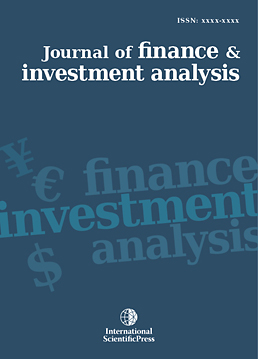Journal of Finance and Investment Analysis
Abnormal accounting accruals Management by market disciplinary approach: Evidence in Tunisian banks before and after the Arab Revolution
-
 [ Download ]
[ Download ]
- Times downloaded: 9698
Abstract
This paper tests the
